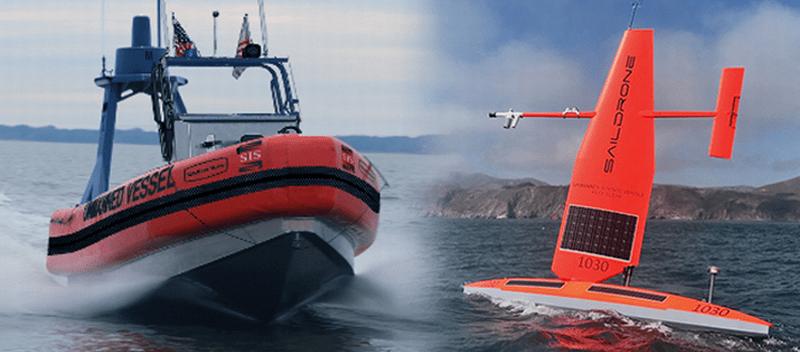 The US Coast Guard Research and Development Center (RDC) has begun testing and evaluation of several unmanned surface vehicles (USVs) off the south shore of Oahu, Hawaii. The testing is scheduled to run through early November, conducted in partnership with local Coast Guard units.
The US Coast Guard Research and Development Center (RDC) has begun testing and evaluation of several unmanned surface vehicles (USVs) off the south shore of Oahu, Hawaii. The testing is scheduled to run through early November, conducted in partnership with local Coast Guard units.
“The tests will focus on autonomous vessel systems from Saildrone and Spatial Integration Systems, in addition to a USCG owned autonomous research vessel made by Metal Shark,” according to a press release issued by the Coast Guard 14th District.
“This evaluation will examine each vessel’s ability to provide persistent maritime domain awareness, especially in remote areas of the oceans. While potentially applicable to many Coast Guard missions, there is potential these technologies will help enable the Coast Guard to better protect critical natural living marine resources from Illegal, Unreported, and Unregulated [IUU] fishing and other illicit activities.”
Last month, Boston-based Sea Machines Robotics, partnered with shipbuilder Metal Shark Boats, of Jeanerette, Louisiana, supplied the RDC with a new Sharktech 29 Defiant USV.
The Defiant is a “29-foot, welded-aluminum monohull pilothouse vessel that comes equipped with the Sea Machines SM300 autonomous-command and remote-helm control technology, offering the USCG capabilities including transit autonomy, collaborative autonomy, collision avoidance, and remote vessel monitoring,” Sea Machines said in a release.
“During demonstrations scheduled for October off the coast of Hawaii, the RDC team will test and evaluate the Sharktech vessel’s autonomous capabilities for their potential in supporting USCG surveillance, interdiction, patrol, and other missions. Following the Hawaii demonstrations, the autonomous vessel will be returned to the RDC’s New London facility, where it will be used in additional testing to investigate application to various Coast Guard missions.”
Thanks to Dexter Donham for contributing to this post.
